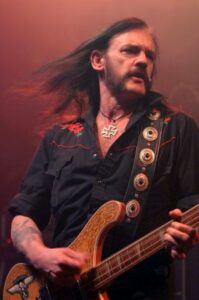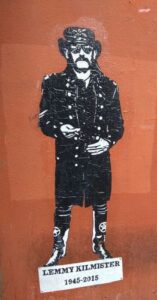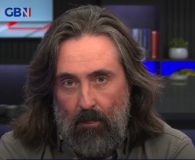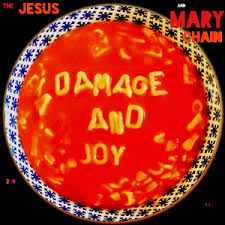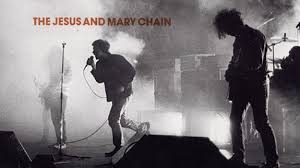
From wikipedia.org / © Masao Yakagami
It was not a great surprise that on November 30th Shane MacGowan, singer, songwriter, musician, raconteur and front-man of much-loved Anglo-Irish folk-punk band the Pogues, breathed his last. The highs of his musical and song-writing creativity had always been offset by the lows of his industrial-strength alcohol and drug consumption, and that consumption had famously taken a toll on his health. Plus, he’d been wheelchair-bound since 2015, when an accident outside a Dublin recording studio resulted in him breaking his pelvis, and he’d spent much of the past year in hospital suffering from viral encephalitis. The writing had been on the wall for poor old Shane for a long time.
Then again, it was absolutely miraculous how long that writing had remained on the wall before the cantankerous old bugger took any notice of it and died. Indeed, back in the 1990s, the prospect of him making it to even the age of 40 had looked doubtful. This was when his drunkenness, drug-taking and general unreliability led to him being ejected from the Pogues. Also, late in the decade, he’d developed a heroin habit so severe that his pal Sinead O’Connor felt compelled to report him to the police before he killed himself with an overdose.
Yet in 2017, he celebrated his 60th birthday. I remember thinking at the time, Wow, six words I never expected to hear together in a sentence: ‘Shane MacGowan’ and ‘celebrated his 60th birthday’. As a 60th birthday-bash, MacGowan was honoured with a do at Dublin’s National Concert Hall, where some of his most famous compositions were played and sung by a series of notable musical icons and talents like O’Connor, Carl Barat, Nick Cave, Bobby Gillespie, Glen Hansard, Cerys Matthews, Glen Matlock and Imelda May. (Bono was at it too.) There can’t have been a single dry eye or lump-free throat in the building when, near the end, the birthday boy himself was wheeled onstage to sing Summer in Siam, from the 1990 Pogues album Hell’s Ditch, with his old mate Cave. He then brought the event to a close with a solo rendition of the venerable Scottish folk song Wild Mountain Thyme.
McGowan was not at the top of his game for terribly long. He appeared on the first five Pogues albums from 1984 to 1990 and on two albums by Shane MacGowan and the Popes in 1994 and 1997, and that was really it. But during that period his songwriting skills were extraordinary. On one level, his lyrics were shot through with a grim, unflinching realism, documenting the miseries that his characters, invariably Irish ones, had to endure: poverty, violence, oppression, imprisonment, addiction, homelessness and heartbreak. Tempering these were mentions of the things that offered their existences some fleeting rays of sunshine: their faith, music and song, enjoying a flutter on the dogs and horses, good company and good booze-ups.
Thus, 1987’s Fairy Tale of New York manages in its four minutes to encompass dying old men, drunk tanks, icy winter winds, broken dreams, violent domestic rows, being bedridden on a drip, winning on a horse that ‘came in eighteen to one’, the songs The Rare Old Mountain Dew and Galway Bay, ringing church bells, the New York Police Department choir, Frank Sinatra, singing drunkards… That’s a lot more ground than your average Christmas song covers.

© Stiff Records
At the same time, and despite his popular public image of slurring befuddlement, MacGowan was a fiercely intelligent type who littered his songs with references to Irish history, literature, religion and myth. For instance, The Sick Bed of Cuchulainn, from 1985’s Rum, Sodomy and the Lash, alludes to the hero of the ‘Ulster’ cycle of Irish mythology in its title and name-checks the following in its lyrics: famed Irish tenor John McCormack, famed Austrian tenor Richard Tauber, IRA man Frank Ryan who led a contingent of Irish soldiers to fight the fascists in the Spanish Civil War, legendary and (literally) legless Dublin beggar and robber Billy in the Bowl, and County Tipperary parish Cloughprior, which is noted for its 15th-century church and cemetery.
Meanwhile, Streams of Whiskey from 1984’s Red Roses for Me is about a dream where MacGowan meets the late Irish writer and hellraiser Brendan Behan, who once described himself as ‘a drinker with writing problems’. Its chorus could be MacGowan’s manifesto: “I am going, I am going, where streams of whiskey are flowing.”
I loved the Pogues and enjoyed much of MacGowan’s later music with the Popes, even though I knew that, being a Protestant from a Unionist community in Northern Ireland, he probably wouldn’t have liked me very much. Mind you, I’m sure there were some staunch members of my family who reciprocated the feeling, viewing him as an unseemly Irish-Republican rabble-rouser. He once told an interviewer: “I felt ashamed that I didn’t have the guts to join the IRA, so the Pogues was my way of overcoming that guilt.” Later in life, while an invalid in Dublin, he sometimes had former Sinn Fein leader Gerry Adams drop by to visit him – “He’s a very easy man to talk to,” was MacGowan’s comment. Then again, he’d been known to wear a Union Jack-patterned coat and, if you’re to believe his widow, the journalist Victoria Mary Clarke, he watched The Crown (2016-23) avidly and shed tears at the deaths of Queen Elizabeth, Prince Philip and Princess Diana. A Northern Irish Proddy I might be, but those are things I wouldn’t countenance doing.
In the summer of 1995 I was in New York when I learned that Shane MacGowan and the Popes were performing at a local venue. So I bought a ticket. The gig saw a mightily-inebriated MacGowan manage to sing all of two songs. He spent another fifteen minutes sitting at the edge of the stage clutching his head while the Popes played a couple of instrumentals. Then he disappeared. The band did a few more instrumentals, then followed their leader’s example and exited too. The crowd rioted. McGowan did not look like a man who had much of a professional future ahead of him. Or indeed, much of a future.
Yet he was in better form three years later when I saw him, with the Popes again, at the Fleadh outdoor music festival at London’s Finsbury Park. At least, he remained standing and remained singing for the entire set, even if he did have the dazed air of a man who’d just been returned to earth after being abducted and probed by aliens. And it was touching how, when the performance was done, the crowd kept chanting, “Shane-o! Shane-o! Shane-o!” until, finally, a big, appreciative grin spread across his bleary features.
And he was better still the next time I saw him, in the early noughties. He and the rest of the Pogues’ classic line-up – James Fearnley, Jem Finer, Cait O’Riordan, Andrew Ranken, Spider Stacy, Terry Woods, the late Philip Chevron and the late Darryl Hunt – had got together for a Christmas tour and they made an appearance at the Metro Radio Arena in Newcastle-upon-Tyne, where I was living at the time. Admittedly, MacGowan’s voice was weaker than it’d been during the glory days of Rum, Sodomy and the Lash, but he seemed to raise his game whenever Cait O’Riordan sang onstage with him. And their rendition of Fairy Tale of New York, with O’Riordan taking the place of Kirsty McColl, who’d died four years earlier, was rather wonderful.
The whole event, shameless, nostalgic cash-in though it was, was rather wonderful in fact. Well, with a combination of the Pogues, Christmas and a few thousand boozed-up Geordies, how could it not be wonderful?

© Pan Books
In the meantime, in 2001, MacGowan and his missus Victoria Mary Clarke had published a book called A Drink with Shane MacGowan. A rambling mixture of memoirs, anecdotes, opinions and philosophy related by the great man and recorded and edited by Clarke, A Drink… is very entertaining, fascinating in parts and knowingly hilarious in others. I particularly liked the bit in it where MacGowan theorises why Irish playwright Samuel Beckett was such an existentialist misery-guts – it was because he was the only man in the whole of Ireland who liked cricket. Mind you, I suspect there’s some artistic license in MacGowan’s claims that he was drinking, smoking and betting on the horses when he was five years old.
Here’s a list of my ten favourite Shane MacGowan songs – ones he wrote and / or ones he sang.
The Sick Bed of Cúchulainn (from the 1985 Pogues album Rum, Sodomy and the Lash). Glasses of punch, whiskey, ghosts, banshees, angels, the devil, midnight mass, rattling death-trains, pissing yourself, getting syphilis, kicking in the windows of Euston taverns and decking “some f**king blackshirt who was cursing all the Yids…” Yes, this is the song that truly sets out the Pogues’ stall.
Sally MacLennane (from Rum, Sodomy and the Lash). Equally rousing and elegiac, this is the perfect song for bidding adieu to an old friend: “I’m sad to say, I must be on my way, so buy me beer and whiskey cos I’m going far away… FAR AWAY!”

© Pogue Mahone / Warner Music Group
If I Should Fall from Grace with God (from the 1988 Pogues album of the same name). And this is the perfect go-wild-on-the-dance-floor song for Pogues fans.
Thousands are Sailing (from If I Should Fall from Grace with God). Written by Philip Chevron, this paean to the millions of Irish people who migrated to North America in the 19th and 20th centuries receives much of its power from MacGowan’s vocals, simultaneously wistful and exultant. It just didn’t sound the same when, minus MacGowan, the Pogues performed it in the 1990s. Those who dismiss the band as propagandists for Ireland and all things Irish should note the disdain for the mother-country expressed in the lyrics: “Where e’er we go, we celebrate the land that makes us refugees, from fear of priests with empty plates, from guilt and weeping effigies.”
Down All the Days (from the 1989 Pogues album Peace and Love). A tribute to the severely-palsied Irish writer Christy Brown, who had to “Type with me toes, drink stout through me nose, and where it’s going to end, God only knows,” this also contains the memorable lines, “I’ve often had to depend upon the kindness of strangers, but I’ve never been asked and never replied if I supported Glasgow Rangers.”
What a Wonderful World (a 1992 duet with Nick Cave, available on the 2005 Nick Cave and the Bad Seeds album B-Sides and Rarities). MacGowan and Cave’s amusing, but still tender and respectful, version of the Louis Armstrong classic is the song I want played at my funeral.
God Help Me (from the 1994 Jesus and Mary Chain album Stoned and Dethroned). Considering what MacGowan was going through at the time, this melancholic, low-key collaboration with the usually abrasive, feedback-drenched Scottish alternative-rock band the Jesus and Mary Chain is probably aptly titled.
That Woman’s got me Drinking (from the 1994 Shane MacGowan and the Popes album The Snake). This features one of the best choruses ever: “That woman’s got me drinking, look at the state I’m in, give me one, two, three, four, five, six, seven, eight, nine, ten bottles of gin!”
Her Father Didn’t Like Me Anyway (from The Snake). Gerry Rafferty’s rumination on a relationship that’s gone wrong is reworked by MacGowan and the Popes in their own inimitable manner. I wonder what Rafferty thought about the subtle change made to the lyrics at the very end of his song. The Rafferty version simply concludes, “Her father didn’t like me anyway.” The MacGowan one concludes, “Her father was a right c*nt anyway.”
Fix It (from the 2010 Alabama 3 album Revolver Soul). You hardly hear MacGowan on this effort from celebrated London blues-country-electronica-trip-hop-acid-house outfit the Albama 3. Here and there he spectrally moans one simple, plaintive line. But his spirit infuses the song, making it rueful yet ultimately soaring.
And no, I haven’t put Fairy Tale of New York on this list – because I’ve heard it so many times I’m now a bit sick of it. After the sad news of November 30th, though, I wouldn’t be surprised if it’s this year’s Christmas number one.

© Elektra / Wea
